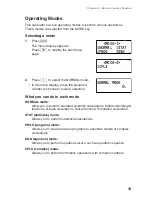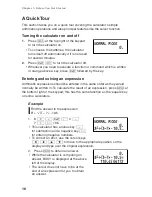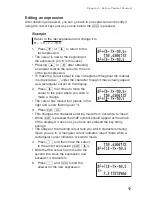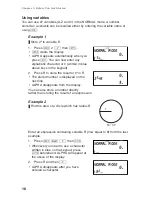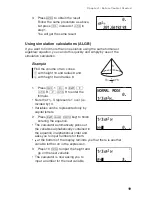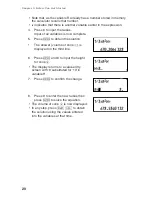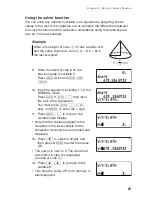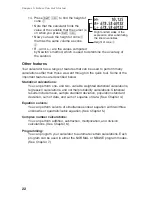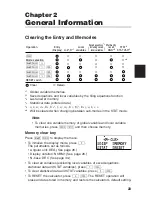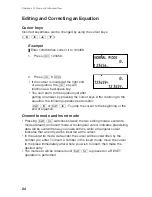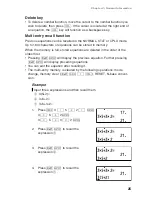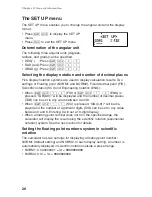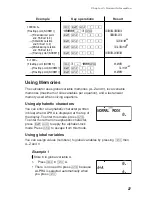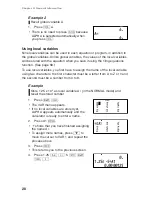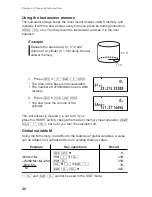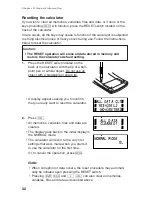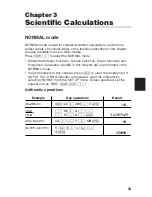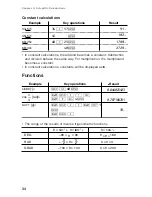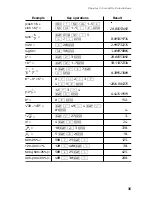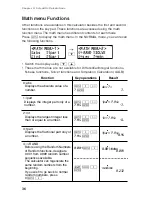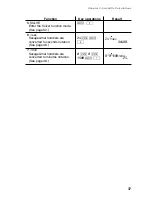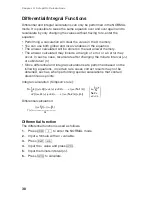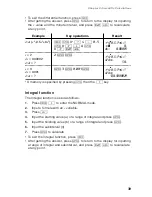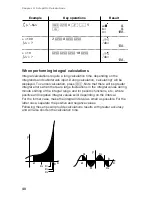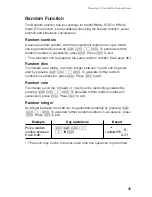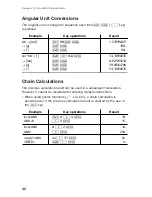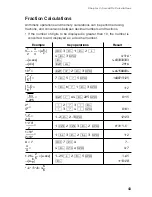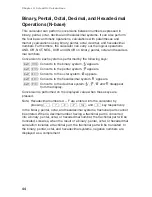
29
• You do not need to enter an alphabetic character. Just specify the
named local variable using a number from 0 to 8, or move the arrow
to the appropriate variable the press
e
.
5.
Press
@
v
0
e
.
• The value of VAR 0 will be recalled.
• Alternatively you can recall a variable by
moving the arrow to it then press
e
twice.
Note:
• You can change the name of a local variable by overwriting it in the VAR
menu. The cursor appears when
r
is pressed in the VAR menu.
• Local variables not stored using the filing equations function will be
deleted by mode selection or memory clear operation (
@
P
1
y
).
• Local and global variables will be cleared by creating a new program,
and editing and running a program.
Using variables in an equation or a program
Both global and local variables can be used directly in an equation or a
program. Local variables are useful when you need to use variables such as
X
1
and X
2
at the same time in another equation. The local variable names
and their values can be saved in each equation. (See page 58.)
Example
Using A (6) and A
1
(0.0000125) from the last two examples, solve the
expression.
1
—
A
1
– 1000A
1.
Press
j
1
k
.
• Start entering the expression.
2.
Press
@
v
.
3.
Press
0
-
1000
;
A
e
.
• The display returns automatically to the
previous screen after you have chosen
the local variable, and you can continue
to enter the expression.
• You do not need
k
if you use a
variable. However, the variable must be
a multiplier.
Chapter 2: General Information
NORMAL MODE
0.
1ı_
0.0000125
A1=
0.0000125
¬ƒA¡ ‹ fl
⁄ › ‡
¤ fi °
0.
1ıA¡-1000A=
74000.
Summary of Contents for EL-5230
Page 1: ...PROGRAMMABLE SCIENTIFIC CALCULATOR OPERATION MANUAL EL 5230 EL 5250 ...
Page 2: ......
Page 12: ...10 ...
Page 62: ...60 ...
Page 132: ......

